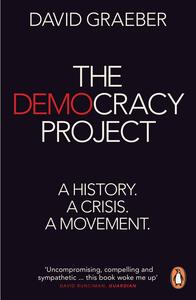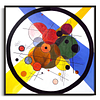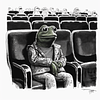Take a photo of a barcode or cover
A very practical and sometimes even dry manuscript for people who are actively engaged in social justice movements and activism in general. I absolutely loved this book because instead of trying to sound “smart” by using a certain tone and structure customary in academic writing, it focuses on practicality and what can help people in the field. In that sense, it’s anarchism in writing form as it doesn’t let unnecessary constraints of academic writing get in the way of what needs to be said.
I see some comments critiquing the form of the writing rather than the content and I think they’re missing the point. This is not your regular non-fiction best-seller. This is an instruction book for activism with some backstory to make the concepts stick and make sense.
Anyway, I recommend this book to anyone who is involved in social activism, especially in the Middle East and the Asian continent in general just to see how similar all countries are when it comes to oppression and violence against social justice movements.
I see some comments critiquing the form of the writing rather than the content and I think they’re missing the point. This is not your regular non-fiction best-seller. This is an instruction book for activism with some backstory to make the concepts stick and make sense.
Anyway, I recommend this book to anyone who is involved in social activism, especially in the Middle East and the Asian continent in general just to see how similar all countries are when it comes to oppression and violence against social justice movements.
This book was interesting. The beginning is a long explanation of the author's time in the Occupy Wall Street movement, and while mildly interesting, I got bored quickly. Near the end of the book the author thinks aloud about what the idea of democracy is and poses some good questions to ponder.
A reflective look at the concept of *democracy*, interspersed with after-action-report tidbits of the *Occupy* experience from one of the organizer-participants (hesitant to use the term "leader", as the entire text serves up a discourse on establishing group consensus, what we talk about when we talk about democracy, not necessarily coinciding with majority vote).
There are quips in this that are shockingly of adolescent grade, but still, this is a remarkable read -- a grappling aloud of what democracy looked like to people in historic times, what it means in the 21st century, how it played out in the Occupy movement, what it could look like in a positive future. But there are no formulas proffered, no pitch jingled, no sloganeering -- just contemplation of *democracy*.
There are quips in this that are shockingly of adolescent grade, but still, this is a remarkable read -- a grappling aloud of what democracy looked like to people in historic times, what it means in the 21st century, how it played out in the Occupy movement, what it could look like in a positive future. But there are no formulas proffered, no pitch jingled, no sloganeering -- just contemplation of *democracy*.
Second book of Graeber's that I've reed. Like "Debt: The First 5,000 Years" this book also breaks some popular myths, that I have internalized, but mainly "The Democracy Project" is guide to direct action.
Writing of Graeber is again bit unpolished, maybe with bit more editing this could have come out less clunky (Q&A part), and with some nice theme's weaved trough the whole book.
Only thing I disagree in with Graeber is his pessimism about the police. There was some nice tactics deployed by OTPOR to influence the police, that should have been definitely mentioned in this book.
Writing of Graeber is again bit unpolished, maybe with bit more editing this could have come out less clunky (Q&A part), and with some nice theme's weaved trough the whole book.
Only thing I disagree in with Graeber is his pessimism about the police. There was some nice tactics deployed by OTPOR to influence the police, that should have been definitely mentioned in this book.
funny
hopeful
informative
inspiring
medium-paced
This book, written on the tail-end of Occupy Wall Street under the Obama Administration, is a crucial read in the Trump Age. Lest we decide our organizing needs to 'grow up' and focus on electing moderate democrats, Graeber is here to remind us why successful movements need to be much deeper and more radical.
In addition to a brief ethnography of OWS, Graeber digs into the strange history of democracy in the U.S. Part of my brain quibbles that Graeber is too optimistic, and also that he doesn't spend enough time talking about race, but by and large I find his scholarship delicious.
Who's with me for a pro-sortition movement?
(however: people kept thinking I was reading a book about the Confederacy because of this ugly cover)
In addition to a brief ethnography of OWS, Graeber digs into the strange history of democracy in the U.S. Part of my brain quibbles that Graeber is too optimistic, and also that he doesn't spend enough time talking about race, but by and large I find his scholarship delicious.
Who's with me for a pro-sortition movement?
(however: people kept thinking I was reading a book about the Confederacy because of this ugly cover)
hopeful
informative
inspiring
reflective
medium-paced
Decent account of Occupy. Decent intro to Graeber's political philosophy. Content of this book felt more like a Good Podcast episode than a good book though. May have set my expectations a little high after Debt proved to be the most thorough trade nonfiction book I've read in a decade.
i feel like this book affirmed so many beliefs i hold but can't explain because i don't have the knowledge or experience. makes me feel not crazy i guess. i learned a lot and definitely think it was a good foray into graeber's work. i want to read debt next
LOVE community reviews bc something everyone else was saying that i totally agree with is how incredible his sociological imagination is. he doesn't just critique our current system but imagines a new one with really understandable examples of true democracy in social movements and interpersonal relationships. i really loved the end where he talks about how we are all communistic in how we love. also the how to deal with police section is super interesting and nothing like anything i've heard before in how to protest and interact with cops. this book is simultaneously theory and a practical manual. so cool
LOVE community reviews bc something everyone else was saying that i totally agree with is how incredible his sociological imagination is. he doesn't just critique our current system but imagines a new one with really understandable examples of true democracy in social movements and interpersonal relationships. i really loved the end where he talks about how we are all communistic in how we love. also the how to deal with police section is super interesting and nothing like anything i've heard before in how to protest and interact with cops. this book is simultaneously theory and a practical manual. so cool
challenging
informative
inspiring
reflective
fast-paced


